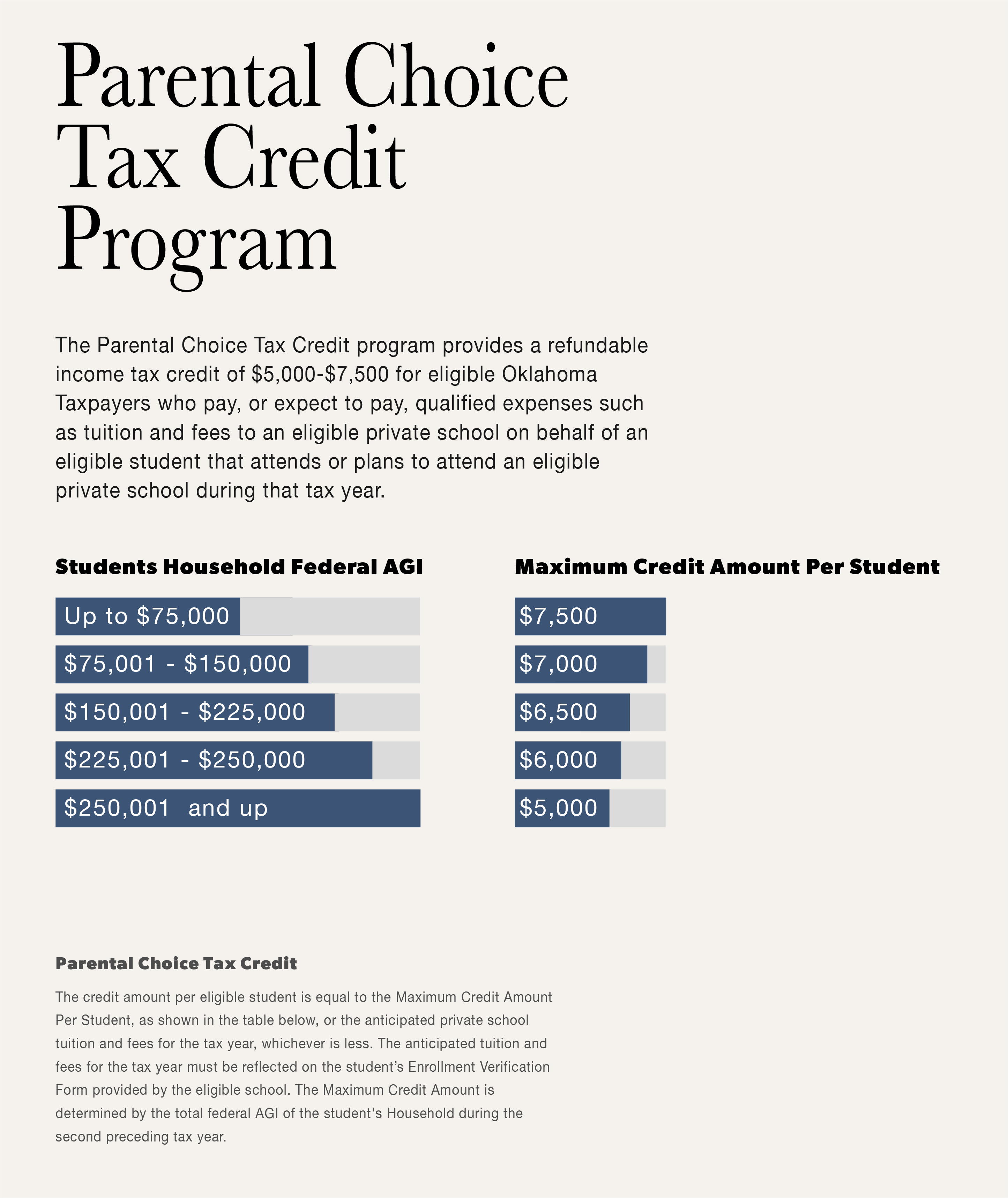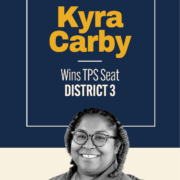
LOCAL & STATE
John Neal
Featured Image. The Oklahoma Eagle & Adobe Images
The State of Oklahoma is doling out public funds to pay for private school tuition and other fees for school kids across the state including those from very affluent families. A $150 million special fund for parents whose children attend private schools has drawn over 30,000 applicants. There is no income limit for families who apply so the funds could potentially go to those with hundreds of thousands of dollars – or more – in annual income.
The Oklahoma Tax Commission (OTC) website promotes the new program saying, “Get up to $7,500 for Private School Expenses.” Checks will be sent directly to the private schools on behalf of “Oklahoma taxpayers who pay or expect to pay qualified expenses such as tuition and fees to an eligible private school” according to the OTC Oklahoma Program Handbook.
The program was established by the Oklahoma Parental Choice Tax Credit Act, created through passage of House Bill 1934 in November 2023. The statute stipulates that all families in Oklahoma are eligible for refundable tax credits of $5,000 to $7,500 per child to pay for private-school tuition. GOP legislators pushed the statute through for the vote.
Still, implementing this new program has been riddled with problems and cost overruns.
Program disadvantages north Tulsa
The program disadvantages families and school kids in north Tulsa and other low-income neighborhoods in the state. Tulsa has 11 private elementary and high schools with approximately 4,400 students. None of the private schools listed by the Private School Review are located in north Tulsa. No schools on Tulsa’s north side receive funds through the program.
Democratic legislators opposed the new law and continue to launch heavy criticism of it. They describe the program as a boondoggle for the rich that will short-change public education.
In an interview with The Oklahoma Eagle, State House Rep. Regina Goodwin (D-73) said, Oklahoma public schools educate approximately 90 percent of our students. I voted against the tax scheme which undercuts our public education system and is basically a gift to the rich. The $5,000 to $7,500 of public dollars given to each student in a household attending a private school will cost us $150 million in 2024 and $250 million by 2026. Public schools are under attack.”
Rep. John Waldron (D-77), whose district also includes north Tulsa said, “This legislation was clearly written to benefit affluent families already enrolled in exclusive private schools,” Waldron told The Oklahoma Eagle. “In the future, we can expect to see private schools raise tuition since that’s an easier way to capture the tax credit bonanza than hiring more teachers and building more classrooms,” he added.
The Oklahoma State Tax Commission began approving applications in January 2024 for up to $7,500 annually per private school student expenses. There is no limit on family household income for Oklahoma residents eligible for the private school “tax credit.” Nor is there a limit on the number of students in a family whose expenses will be paid to attend private school. Under the Parental Choice Tax Credit Act passed by the Oklahoma legislature and signed into law in May 2023, households having no tax liability but eligible for the credit will receive a reimbursement check from the state.
Program benefits a tiny fraction of Oklahoma schoolkids
Oklahoma joins over 20 states that have enacted some form of public fund payment for private school students. Ed Choice, an advocate of such programs, estimates 770,000 private school students nationwide benefited from state financial aid in the 2022-23 school year. The Oklahoma Tax Commission Impact Statement on the legislation told Oklahoma lawmakers, citing the Private School Review, that 37,668 students in 2023 were attending Oklahoma private schools. This number represents approximately five percent of the 700,000 students in Oklahoma public schools.

Every private school student in a family with household incomes up to $75,000 is eligible for $7,500 in private school expense payments. The Oklahoma state average household income is $61,364, according to the latest U.S. Census estimate. So, most households with students enrolled in private schools are likely to be eligible for the full amount. Families with incomes of $150,000 or less are eligible for $7,000 but are still among applicants “to receive priority consideration,” according to the state handbook. For households making more than $250,000 annually, the reimbursement is “limited” to $5,000 per year.
This payout is for private school “qualified expenses,” including tuition and fees. The average tuition among Oklahoma’s over 200 private elementary and high schools, not including other reimbursable fees, is $7,153, per an Oklahoma Tax Commission (OTC) report to legislators. The OTC private school payment for families will be the maximum amount per student based on household income or actual tuition and fees, whichever is less.
The OTC in the state handbook has defined non-tuition qualified expense fees to include textbooks, uniforms, enrollment, registration, application, testing and assessment, activity, and technology fees. Unlike public educational institutions, private schools need not be accredited by the Oklahoma State Department of Education (OSDE) to receive state funding. Additionally, in contrast with public schools, most private schools receiving taxpayer funds under this program are religiously affiliated or have a religious curriculum. For example, of the 11 Tulsa private elementary and high schools, only one is non-sectarian.
The costs and process
The Act sets aside $150 million in 2024 for private school costs, increasing to $200 million in 2025 and then to $250 million in 2026. It also includes $5 million for home school costs. The legislation directed the Commission to “give first preference” to households with $150,000 or less incomes.
On May 1, 2023, while the private school funding legislation was still making its way through the respective chambers, the OTC informed lawmakers that these set-aside amounts would need to be increased. The OTC projected “claims for private school expenses to total approximately $276 million for the tax year 2024, which is in excess of the proposed $150 million…” and made similar underfunding projections for subsequent years.
Due to the complex processing procedures and large number of claims, application processing was delayed until Dec. 6, 2023, for those households with incomes of $150,000 or less. The application deadline for this “priority” group was also extended until Feb. 5, 2024. Application processing will follow for households making over $150,000 in income.
While the Commission has not yet provided a dollar amount in claims currently being processed, applications of more than 30,000 would suggest support for the OTC’s statement that the program is underfunded.
Additionally, administrative costs for the private school reimbursement plan have far exceeded budgeted amounts. The OTC initially put forward an administrative cost of $1 million but later awarded a contract to a third-party vendor for $3.9 million. This prompted State Sen. Carri Hicks (D-40), to tweet, “We were told time and again the overhead would not exceed 1M, & here we go again that ‘choice’ is costing taxpayers nearly 4X…”.
Public education comparison
A statewide private school funding voucher bill narrowly failed in the 2022 Oklahoma legislative session. Rural legislators opposed it because of fear public education could lose funding. The 2022 SB 1647 legislation would have transferred funds from the Oklahoma State Department of Education (OSDE) budget into a revolving account students’ parents could use for private school expenses. Critics charge that the Parental Choice Tax Credit Act adopted in 2023 uses tax credits instead of vouchers to cloak the funding source. Critics also assert private school funding will ultimately harm public education.
Opposition to Oklahoma tax credit funding of private schools may also have been blunted by a significant increase in public school spending in that same year. This increase included public teacher pay increases and a more substantial allocation of state aid formula funds to local school districts for the 2023-24 school year.
Yet, a straightforward empirical comparison of state aid in 2024 reflects private school students will likely receive more state aid than their public-school counterparts. For example, the Tulsa Public Schools Preliminary Budget adopted for 2023-24 has less than $4,600 per TPS student in “Total State Sources of Revenue.” In contrast, private school students will receive $5,000 to $7,500, with most recipients trending toward the higher amount.
State Superintendent of Public Instruction Ryan Walters presented the proposed OSDE budget for public schools to Oklahoma legislators on Jan. 10, 2024. This proposed budget, as presented by Walters, is a $47 million reduction over the previous year.
TRUSTING NEWS INITIATIVE. As a valued reader, we sincerely believe that your insight and candid feedback will help strengthen our ability to publish news and information that engenders greater trust in the media. We encourage you to share your thoughts about this article by sending an email to trustingnews@theokeagle.com









